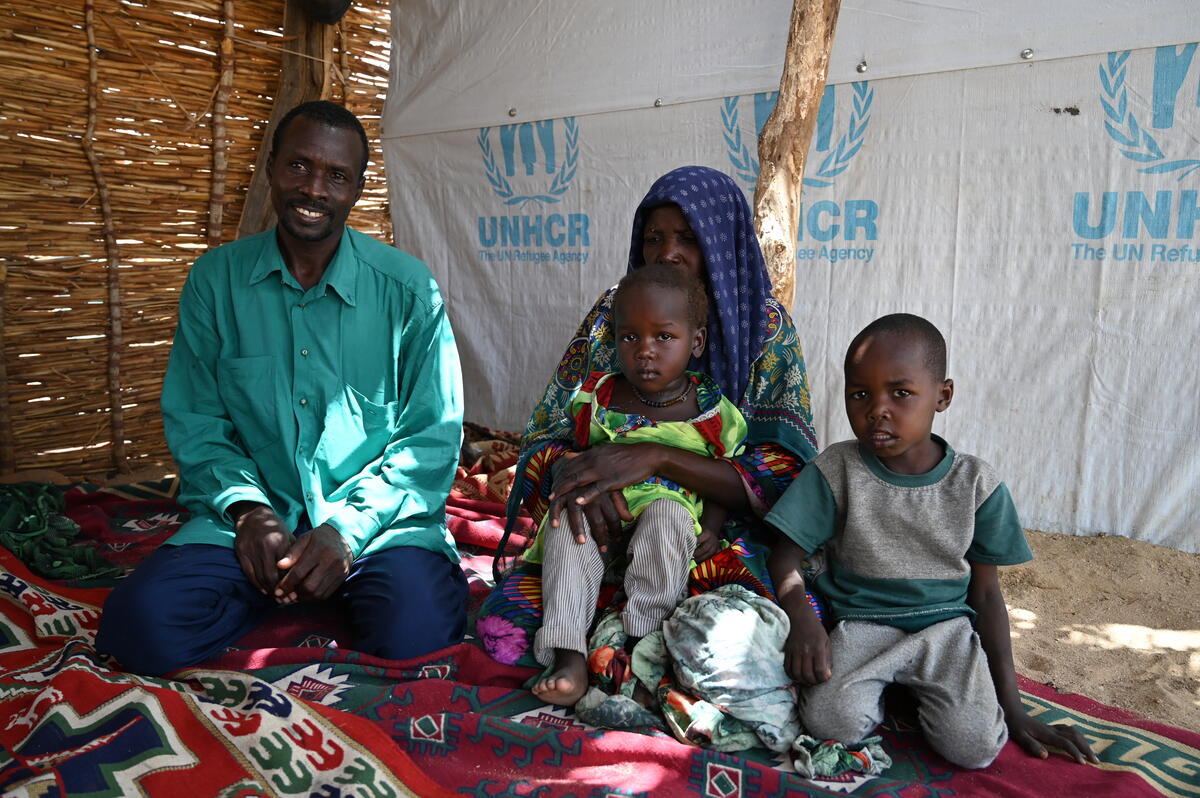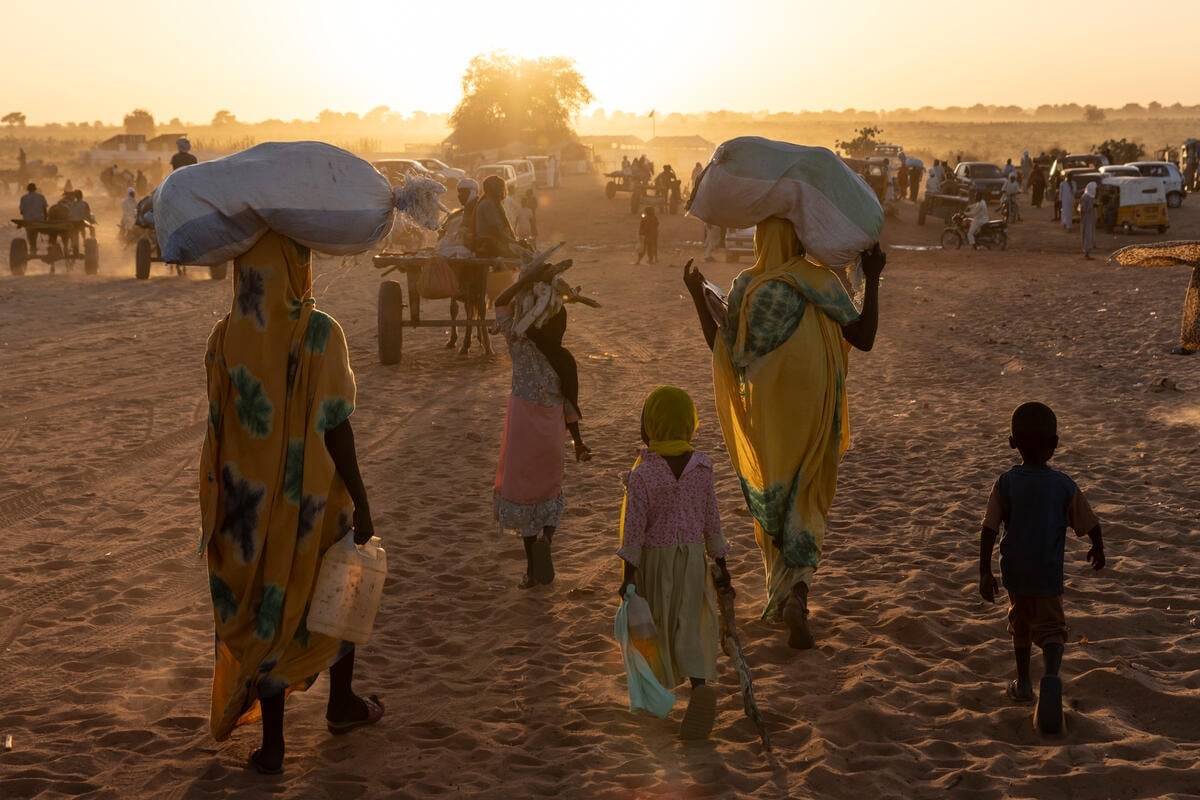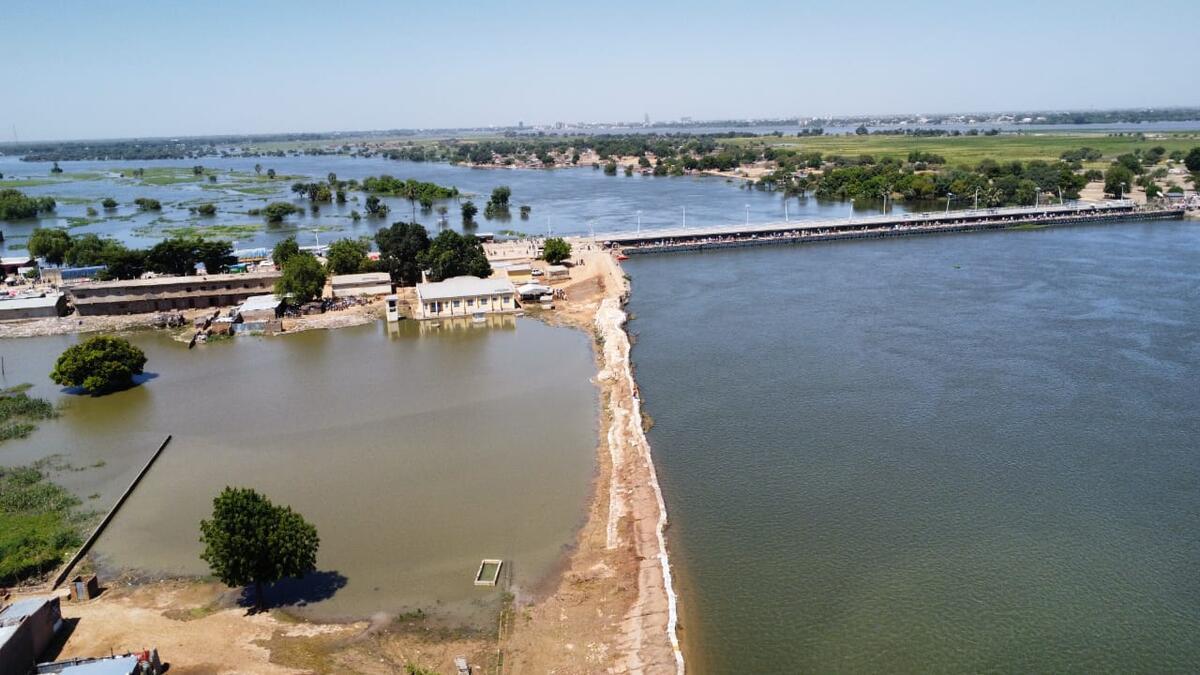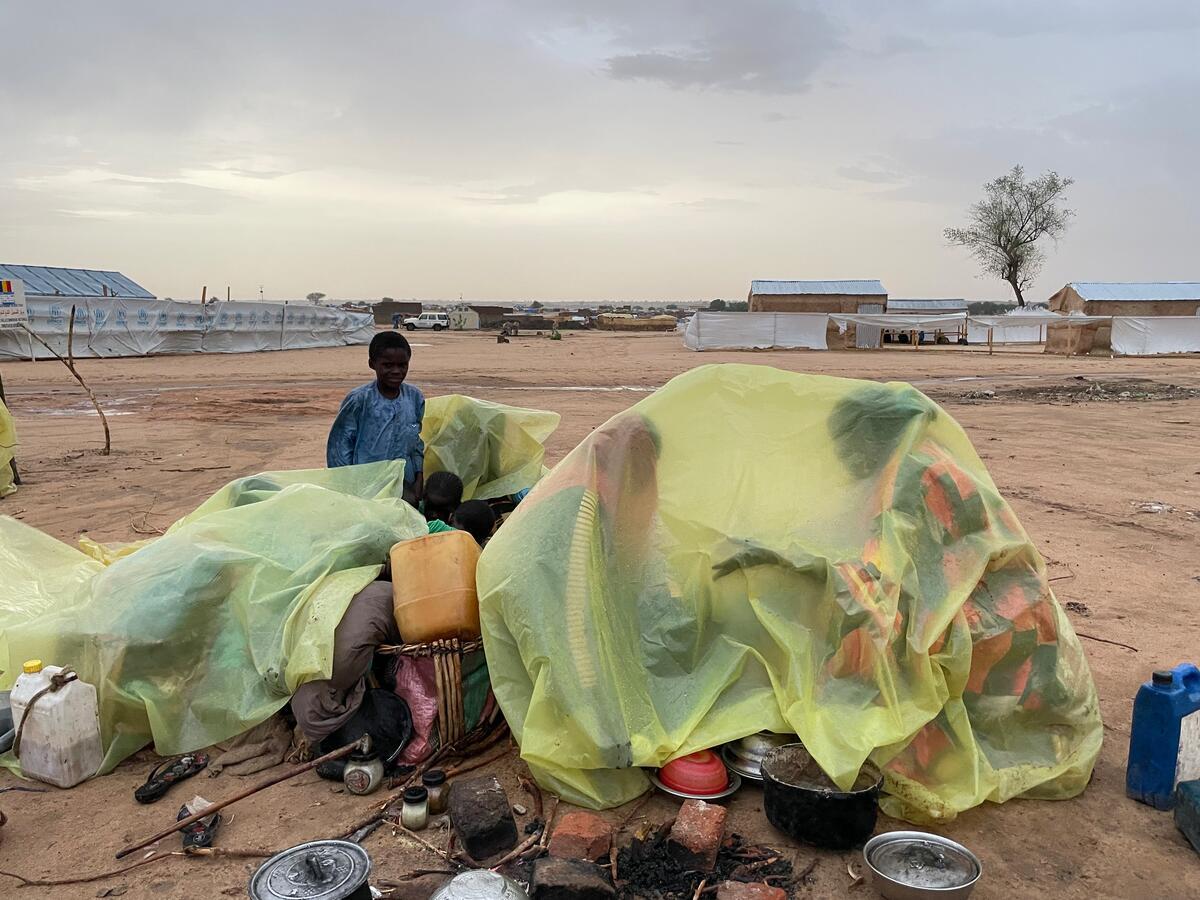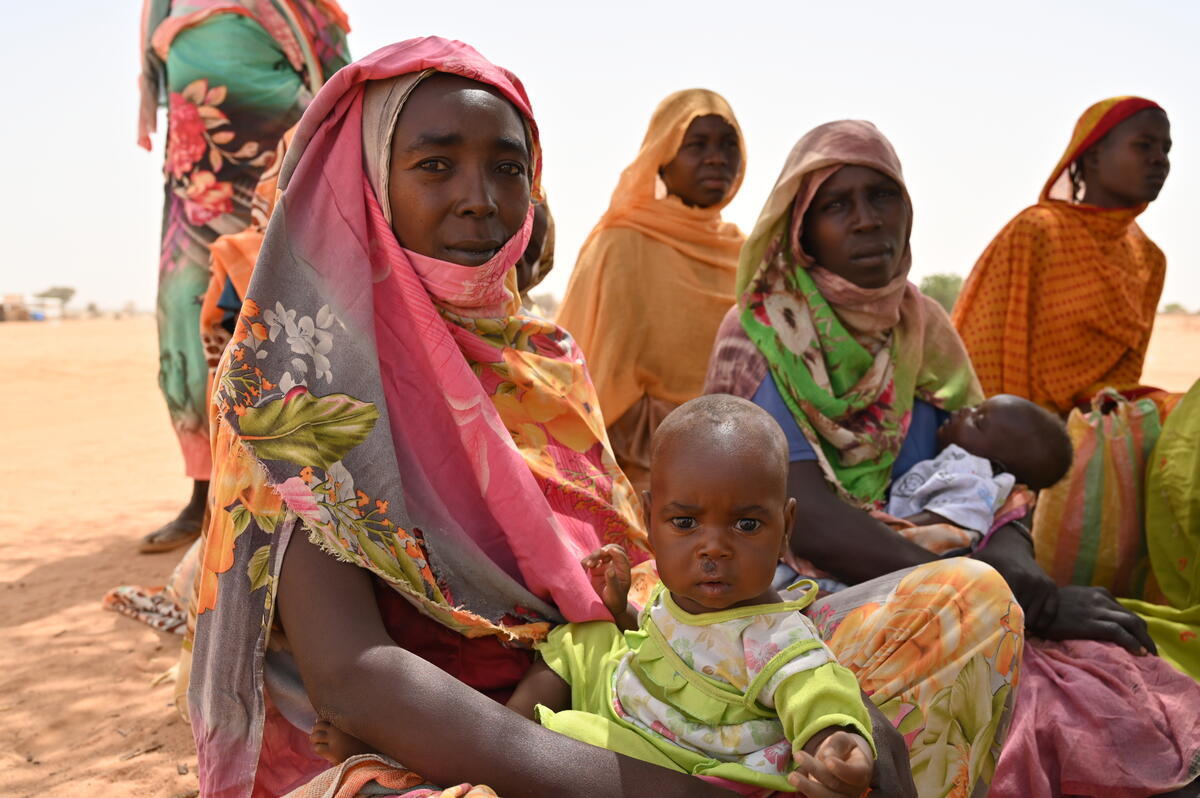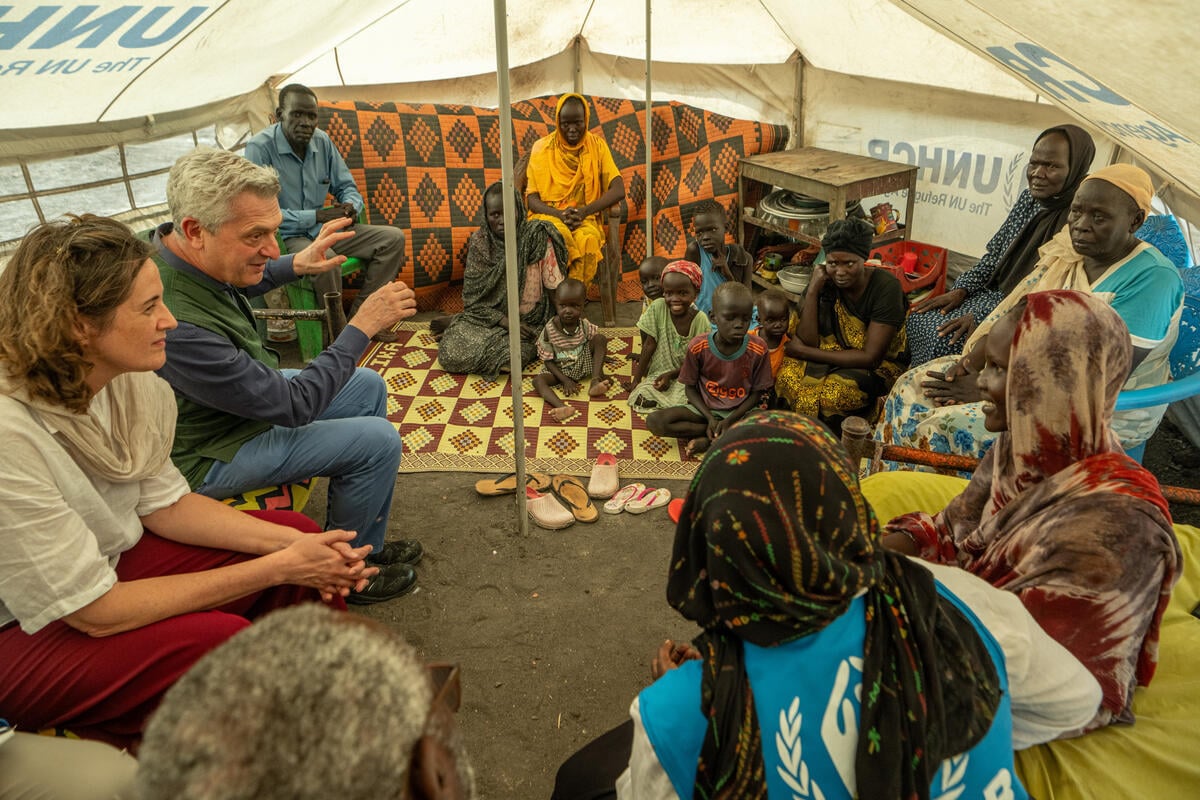Chad/Darfur: UNHCR to substantially increase presence in West Darfur
Chad/Darfur: UNHCR to substantially increase presence in West Darfur
UNHCR will be substantially increasing its operational presence in the West Darfur area of Sudan as part of a U.N. effort to provide protection and assistance to hundreds of thousands of uprooted people in regions near the border with Chad. (Details are available in a press release we issued yesterday.) One of the reasons we're going to be expanding our activities on the Sudan side of the border is to try to ease the enormous strain currently being placed on neighbouring Chad by the presence of some 200,000 refugees from Darfur. Most of them are currently staying in 11 remote camps in eastern Chad overseen by UNHCR and its partners. We fear that if the situation is not stabilized soon in Darfur, we could see tens of thousands more refugees cross the border into Chad, where resources are already stretched to the breaking point and where there is growing animosity among the local population.
One major problem in Chad is water. Some of the camps are going to run out of it very soon, leaving thousands of refugees in an extremely precarious position. Eastern Chad is one of the driest places on earth and finding enough water has been a huge logistical problem from the very start of this operation. We've even used satellite imagery to help in the search for camp sites with adequate water supplies. Numerous sites were chosen during the past six months only to be abandoned when tests showed them to be dry or inadequate. The area has a rainy season of only three months per year. This year the rains came late and far between, with total rainfall only about a third of normal amounts. Thus, an already bad situation has been further aggravated and has now led us to increase our efforts to find new camp sites with enough water for large refugee populations.
In Iridimi camp near Iriba, for example, the water table is decreasing much faster than foreseen, with the current supply likely to last for only two more weeks - despite pumping 23 hours a day. The 15,000 refugees at the camp are currently receiving only 6 litres of water per refugee per day, far below our standard of 15 litres during an emergency operation. Water experts who have analysed other possible sources near Iridimi say we have only a 10 to 15 percent chance of finding enough water for the 15,000 residents of the site. Even if more water is found at the site, however, it is likely to be enough for just two to three months or perhaps somewhat longer if Iridimi's population is reduced to just 5,000 refugees.
As a first measure, we have decided to begin trucking water to the camp and have begun talks with the local prefect to draw water from the city of Iriba for a limited period. The danger is that we may exhaust the region's water tables. In addition, we are looking into the possibility of moving some 7,000 refugees from Iridimi to Kounoungo and other camps. Although only one of three wells in Kounoungo is being used, it has been able to supply water to all 12,000 refugees, allowing more refugees to be moved to that camp. Three other sites for camps have been suggested by local authorities. These are near Biltine and in the Guéréda and Iriba areas. Studies will be undertaken to determine their feasibility.
In addition, we plan to carry out ground water searches in the AmNabak spontaneous camp, which was scheduled to be closed and its 11,000 refugees transferred to a new site at Mader. But numerous studies at the Mader site have also failed in finding adequate amounts of water and we have decided to abandon the project. We continue to negotiate with local authorities in the search for new sites not only to replace current camps such as Iridimi but as part of contingency planning to receive up to 100,000 new refugees in the coming months.


